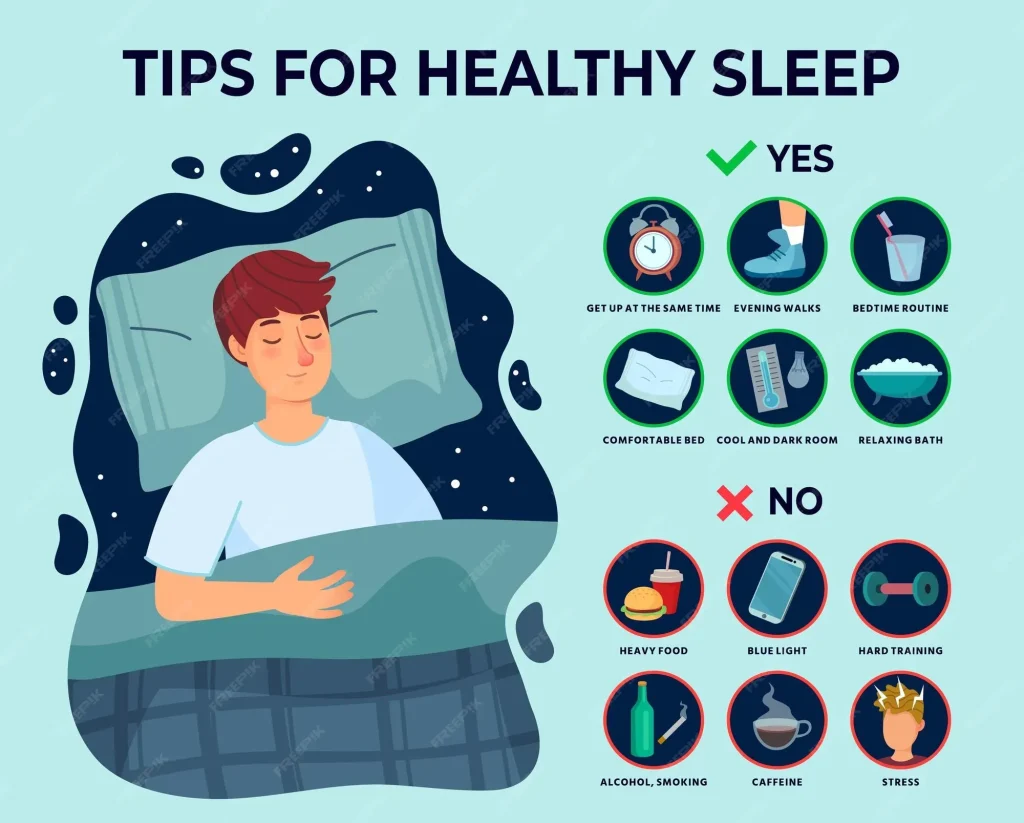Sleep Health serves as a foundation for mood, energy, immune function, and overall well-being, and its impact becomes clear the moment you notice how nightly rest shapes concentration, motivation, stress tolerance, and daytime resilience across work, relationships, and daily choices. In this introductory guide, seven practical hacks are presented as clear, actionable steps that can be woven into even the busiest schedules, helping you build a durable base for lasting wellness and a pattern of more consistent, restorative nights that support daily performance and long-term health. Rather than chasing quick fixes, the guidance emphasizes gradual, sustainable changes that harmonize with natural rhythms; prioritizing a consistent schedule supports your circadian rhythm, reduces variability in sleep timing, and makes it easier to fall asleep quickly, stay asleep deeply, and wake with greater clarity and energy. You’ll find emphasis on simple, person-centered choices—like a comforting wind-down routine, a sleep-friendly environment, mindful caffeine use, and gentle boundary-setting around screens—so that the daily practice feels doable, adaptable, and aligned with your life, not a rigid set of restrictions. As you experiment with these strategies, you’ll build confidence that better Sleep Health is achievable, empowering you to protect your well-being over time and experience improved mood, steadier energy, and sharper thinking amid busy days.
From a different angle, rest health can be described through terms such as nocturnal recovery, the body’s biological clock, and the interplay between light exposure and activity that guides nightly restoration. These phrases capture the same core idea as Sleep Health but shift the emphasis toward a broader, search-friendly language that helps connect related concepts and communicate practical steps in everyday terms. In practical terms, the approach translates into routines you can adapt to your life—prioritizing consistent bed and wake times, tuning light exposure, and shaping the evening to foster calm, low-arousal states that support daytime energy. The language may differ, but the goal remains the same: strengthen the body’s natural cycle, reduce wakefulness during the night, and cultivate habits that boost mood and cognitive sharpness across days. By grounding the discussion in these experiences and terms, you can apply evidence-based tips with confidence, creating a sustainable path to better nightly rest and longer-term health.
Sleep Health and Circadian Rhythm: The Power of a Consistent Sleep Schedule
Sleep Health is deeply anchored in the daily rhythm of your body. By going to bed and waking up at the same times each day, you support your circadian rhythm, which governs when you feel alert and when you feel sleepy. This consistency improves sleep onset and helps you achieve longer, more restorative sleep, contributing to better sleep quality and daytime functioning. A predictable schedule also reinforces healthy sleep hygiene, as your cues for winding down become reliable rather than reactive to late-night temptations or weekend shifts.
To put this into practice, pick a target wake time that fits your obligations and back into a bedtime that allows seven to nine hours of sleep. If occasional shifts are unavoidable, limit them to one hour and return to your routine as soon as possible. In the longer term, pair your schedule with a simple bedtime routine—dim lights, minimize screen time, and engage in a calming moment—so your body learns your signals for sleep, supporting your circadian rhythm and overall Sleep Health. This approach reduces nighttime awakenings, stabilizes mood, and improves daytime performance, making it a practical foundation for better sleep hygiene and sustained energy.
Sleep Health Essentials: Environment, Light, and a Calming Bedtime Routine for Better Sleep Hygiene
A sleep-friendly environment is a practical pillar of Sleep Health. Create a cool, dark, quiet room at roughly 60-67°F (15-19°C), invest in a comfortable mattress and breathable bedding, and minimize distractions. Dimming ambient lighting as you approach bedtime and using white noise or a fan can reduce physiological arousal, support better sleep hygiene, and contribute to more stable sleep quality by aligning with your circadian rhythm.
Effective light management reinforces your clock: seek bright morning light to wake up your brain and, in the evening, switch to warmer lighting and limit blue light from screens. If possible, add a simple calming bedtime routine—warming shower, gentle stretching, or a few minutes of deep breathing—to cue your body that sleep is near. These practices reflect practical insomnia tips and promote Sleep Health by enhancing sleep quality, reinforcing your sleep hygiene, and boosting daytime energy.
Frequently Asked Questions
How can Sleep Health be improved by aligning your circadian rhythm with a consistent bedtime routine to boost sleep quality?
Sleep Health improves when you align your circadian rhythm with a consistent sleep schedule and a relaxing bedtime routine. Start by choosing a wake time you can keep daily and set a bedtime that allows seven to nine hours of sleep. Develop a 30- to 60-minute pre-sleep routine that is low-energy and screen-free, and keep your bedroom cool, dark, and quiet to support sleep hygiene. Over time, these habits reduce middle-of-the-night awakenings and strengthen daytime energy and cognitive function, contributing to overall Sleep Health and improved sleep quality.
What practical Sleep Hygiene steps contribute to better sleep quality and serve as effective insomnia tips?
To support Sleep Health and follow practical insomnia tips, focus on core sleep hygiene habits that respect your circadian rhythm and boost sleep quality. Limit caffeine and heavy meals late in the day, and avoid alcohol close to bedtime. Create a sleep-friendly environment, manage light exposure by getting morning light and dimming evening lighting, and time exercise earlier in the day. If worry or racing thoughts persist, try brief mindfulness or breathing exercises to reduce arousal and support a smoother sleep onset.
| Hack | Key Focus | Practical Summary |
|---|---|---|
| Hack 1: Establish a Consistent Sleep Schedule to Support Your Circadian Rhythm | Circadian rhythm, consistency, 7–9 hours | Set a target wake time and bedtime; avoid large variations; aim for 7–9 hours; if needed, limit shifts to one hour and return to the schedule quickly. |
| Hack 2: Create a Sleep-Friendly Environment to Improve Sleep Hygiene | Cool, dark, quiet room; comfortable bed; minimize blue light | Optimize the bedroom: temp 60–67°F, dark, quiet; remove devices or enable blue-light filtering; use white-noise if needed. |
| Hack 3: Build a Relaxing Bedtime Routine to Signal the End of the Day | Relaxation cues, low-energy, screen-free | Begin 30–60 minutes before bed with calming activities (shower, gentle stretches, light reading, breathing); avoid stimulating tasks; journal if racing thoughts. |
| Hack 4: Mind Your Meals, Caffeine, and Alcohol for Better Sleep Quality | Nutrition and timing affect sleep; avoid late large meals; limit caffeine; alcohol disrupts later sleep | Prefer a light evening snack, stay hydrated with water; maintain regular meal times; track intake to identify triggers. |
| Hack 5: Manage Light Exposure to Support Your Circadian Rhythm | Morning light for alertness; limit blue light in the evening | Get morning sunlight or bright light after waking; switch to warmer lighting and use blue-light filters after sunset. |
| Hack 6: Exercise Regularly, But Time It Right for Better Sleep Quality | Regular activity enhances Sleep Health; timing matters | Prefer daytime workouts; if exercising at night, finish 2–3 hours before bed; include cardio, strength, and flexibility. |
| Hack 7: Practice Stress Reduction and Cognitive Techniques for Insomnia Tips | Stress management and cognitive strategies | Use mindfulness, PMR, diaphragmatic breathing; consider cognitive shuffling or a bedtime worry journal; pair with a calm routine. |
Summary
Sleep Health is a dynamic, ongoing process that benefits every facet of your life. By combining a consistent schedule, a sleep-friendly environment, a relaxing bedtime routine, mindful nutrition, deliberate light exposure, regular exercise, and stress-management techniques, you create a supportive ecosystem for restful sleep. The seven hacks outlined here reinforce sleep hygiene and help strengthen your circadian rhythm, improving not only your sleep quality but also daytime energy, mood, and resilience. Remember, small, steady changes accumulate into meaningful improvements over time. If you’re struggling with persistent sleep problems, consider consulting a healthcare professional who can assess underlying conditions. With patience and consistency, you can cultivate better rest, better health, and a more vibrant daily life.



